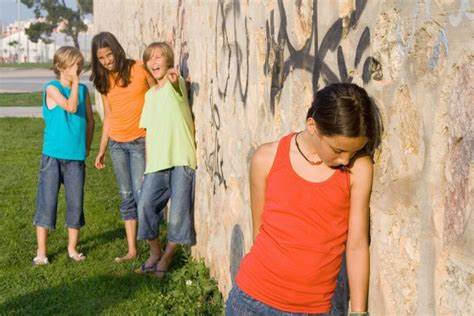
What Are the Signs a Child is Being Bullied at School in 2025
Recognizing the signs of bullying is crucial for parents and educators alike. A child being bullied at school may not always openly admit it due to shame, fear, or a belief that they are somehow to blame. Therefore, parents and teachers need to be vigilant and aware of subtle changes in behavior and mood. Understanding the common signs can help intervene early and prevent long-term harm. These signs can manifest physically, emotionally, and behaviorally, often intertwining and escalating over time. This article explores these key indicators, providing a comprehensive guide to identify potential bullying situations and offer support.
Physical Signs of Bullying:
Unexplained injuries, such as bruises, scratches, or cuts, should always raise a red flag. While accidents happen, frequent or recurring injuries without a clear explanation warrant investigation. Children who are bullied might also exhibit unexplained loss of possessions, such as clothing, books, or personal belongings. This could range from minor items to more significant possessions, depending on the severity of the bullying. Changes in appetite are also common. A child might suddenly refuse to eat lunch at school, claiming they’re not hungry, or conversely, they might overeat as a coping mechanism for stress and anxiety. Headaches and stomachaches, especially those occurring frequently or coinciding with school days, are also significant physical indicators of bullying. Finally, sleep disturbances, such as insomnia or nightmares, can be a physical manifestation of the stress and anxiety caused by bullying. These physical symptoms are often overlooked, yet they are crucial pieces of the puzzle.
Emotional and Behavioral Signs of Bullying:
Beyond the physical, emotional and behavioral changes are often more subtle, yet equally important to recognize. A sudden drop in grades, previously unexplained, can be a major indicator. This is not merely about laziness, but rather a symptom of the immense stress and anxiety bullying causes. The child might be too preoccupied or fearful to focus on their schoolwork. Similarly, a decline in participation in extracurricular activities, which they previously enjoyed, might signal a loss of self-esteem and confidence. Children who are being bullied may become withdrawn and isolated, preferring to stay home rather than face the potential for further harassment at school. They might become unusually quiet and reserved, even around family members who previously enjoyed a close bond. Conversely, some children may exhibit increased aggression, anger, or irritability at home. This can be a manifestation of the pent-up frustration and anger they are unable to express directly to their bullies. Changes in friendships and social interactions are also crucial. A child who is being bullied might suddenly lose friends or seem isolated from their peer group. They may also report feeling afraid to go to school or participate in school activities.
Changes in Self-Perception and Confidence:
A child experiencing bullying often undergoes a significant shift in self-perception and confidence. They might express feelings of helplessness, worthlessness, or hopelessness. This can manifest as a loss of self-esteem, a lack of confidence in their abilities, and a reluctance to participate in activities they once enjoyed. They may exhibit increased anxiety, worry, or fear, even when they are not directly in the presence of their bullies. They might become overly sensitive to criticism or perceive threats where none exist. A loss of interest in previously enjoyed hobbies is another significant sign. This withdrawal from activities is a way for them to cope with the stress and anxiety caused by bullying, reducing exposure to potential triggers and potential further harm. Finally, self-harm or suicidal ideation in extreme cases should prompt immediate professional help. These are serious signs indicative of severe distress and a need for urgent intervention.
What to Do if You Suspect Bullying:
If you suspect your child is being bullied, it’s crucial to maintain open and honest communication. Create a safe space where they feel comfortable sharing their experiences without judgment. Listen attentively, validate their feelings, and reassure them that they are not to blame. Gather as much information as possible, including details about the bullying incidents, the individuals involved, and any witnesses. Contact the school administration immediately and work collaboratively with them to address the situation. This may involve meeting with teachers, counselors, and administrators to discuss strategies for intervention and prevention. Remember, early intervention is crucial in mitigating the long-term effects of bullying. Seek professional help if needed, such as from a child psychologist or therapist, to provide your child with the support they need to overcome this difficult experience. Protecting your child’s well-being and mental health is paramount. Early intervention and collaborative efforts can make a significant difference.
